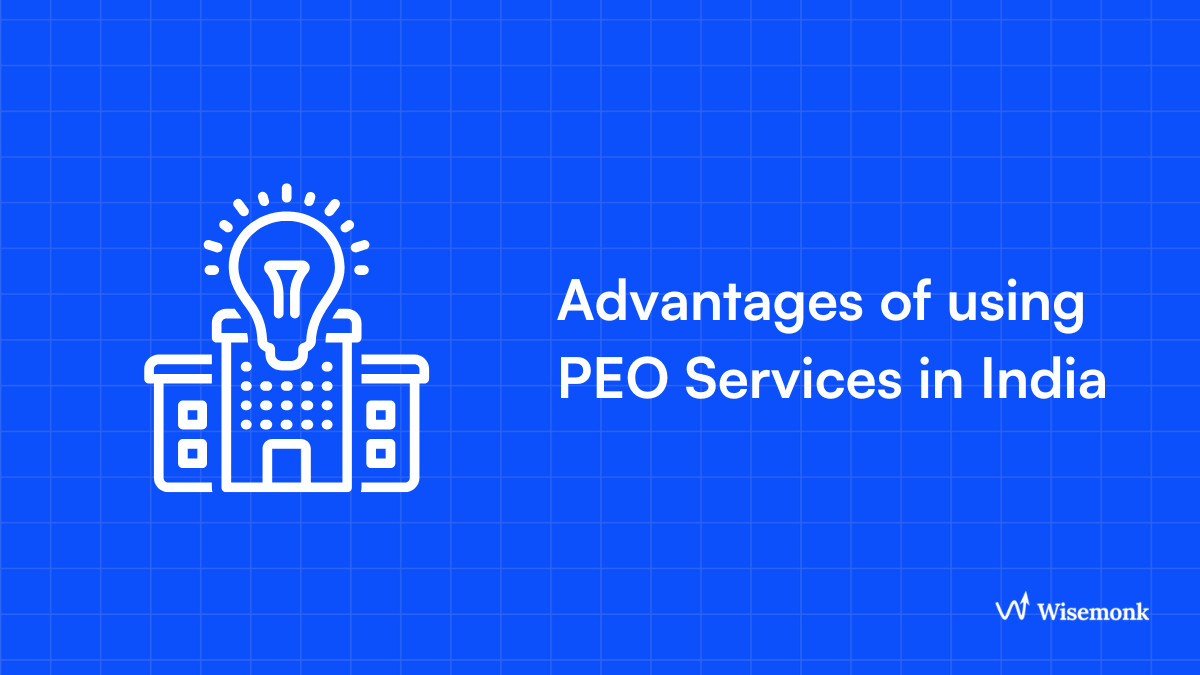Seeking to expand into the Canadian market but unsure how to legally hire employees without a local entity? Navigating Canadian employment standards and payroll taxes can seem daunting, especially with both provincial and federal regulations at play. In our experience working with international employers, we’ve seen how an Employer of Record Canada simplifies market entry, ensures compliance, and supports rapid growth. Let’s explore why choosing an EOR is a game-changer for expansion into Canada.
What are the key Canadian employment law requirements businesses need to know?[toc=Employment Law Framework]
Canada’s employment law framework is shaped by both the Canada Labor Code (federal) and individual provincial legislation. This duality can impact everything from employment contracts to payroll processing and benefits.
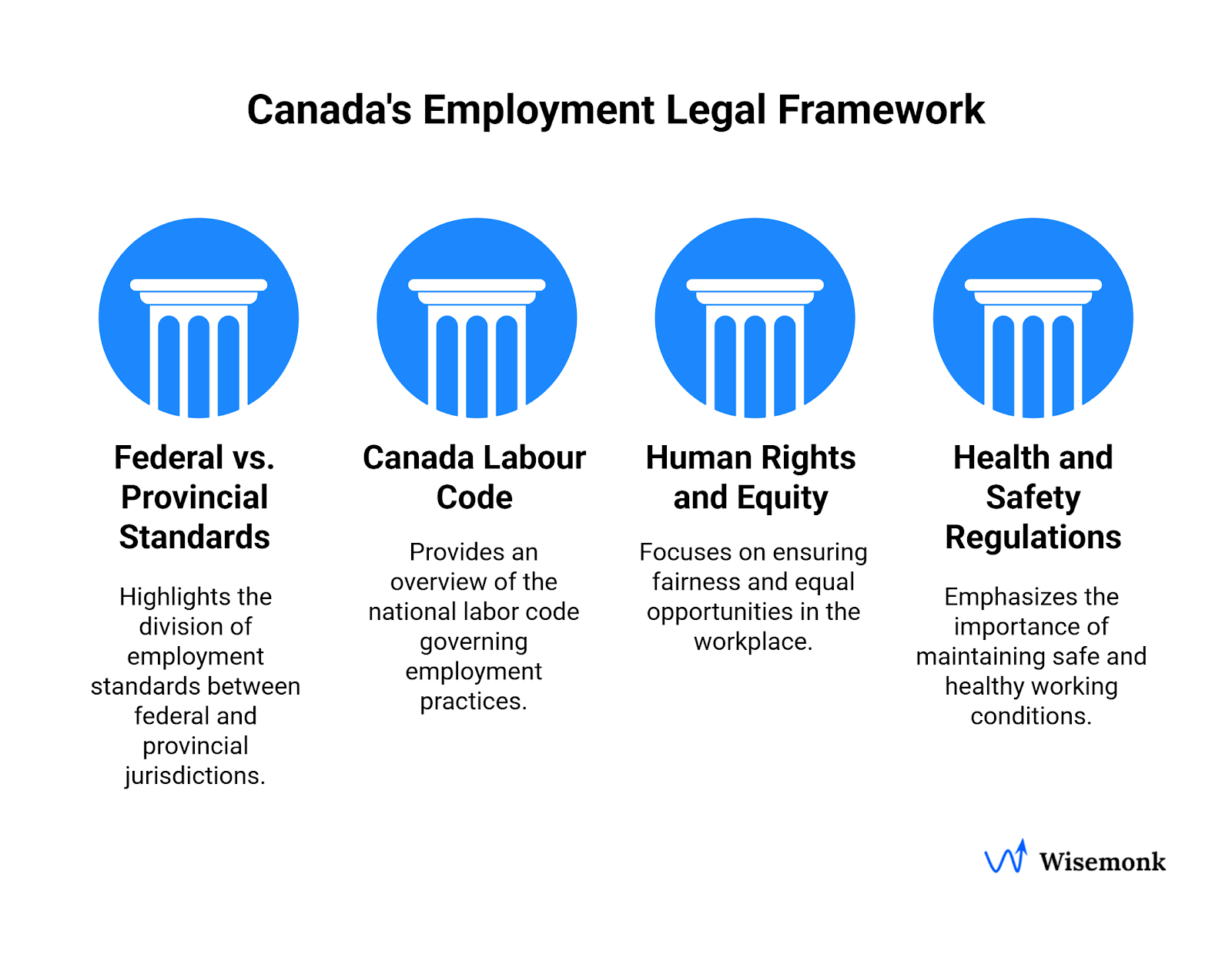
- Federal vs. Provincial Jurisdiction:
- The Canada Labor Code governs sectors like banking, telecom, and interprovincial transportation.
- Most employers fall under provincial jurisdiction, with each province having unique labor laws, minimum wage rules, and overtime pay standards.
- Canada Labor Code:
- Outlines employer obligations, employment insurance, recordkeeping, and workplace safety and health requirements.
- Human Rights & Employment Equity:
- Both federal and provincial human rights acts prohibit discrimination and require equal employment opportunities.
- Health and Safety Regulations:
- The Canadian government mandates workplace health and safety via the Canada Labour Code and equivalent provincial laws, requiring proactive compliance and regular training for all Canadian employees.
How do provincial rules impact EOR services in Canada?[toc=Provincial Considerations]
Having guided several global companies, we can attest that success in Canada depends on understanding local employment laws and their practical impact. Each province’s nuances shape EOR solutions.
- Ontario Employment Standards Act: Strict about minimum wage, vacation entitlements, notice periods, and severance pay. (Ontario ESA)
- Quebec: Unique French-language requirements, mandatory collective agreements, and distinct employment contracts regulations. (QPP)
- British Columbia: Emphasizes employee privacy, comprehensive health insurance, and specific overtime pay rules. (BC Employment Standards)
- Alberta: Offers flexible labor law framework but requires attention to employment health tax and holiday pay structures. (Alberta Employment Standards)
- Other Provincial Variations: Statutory holiday dates, vacation entitlement, and sick leave provisions vary across the Canadian provinces.
What are the Key Benefits of Canadian EOR Services?[toc=Key Benefits of EOR]
Based on our extensive research, we have seen that Canadian Employer Of Record (EOR) services offer practical advantages for global employers seeking robust legal compliance and streamlined operations.
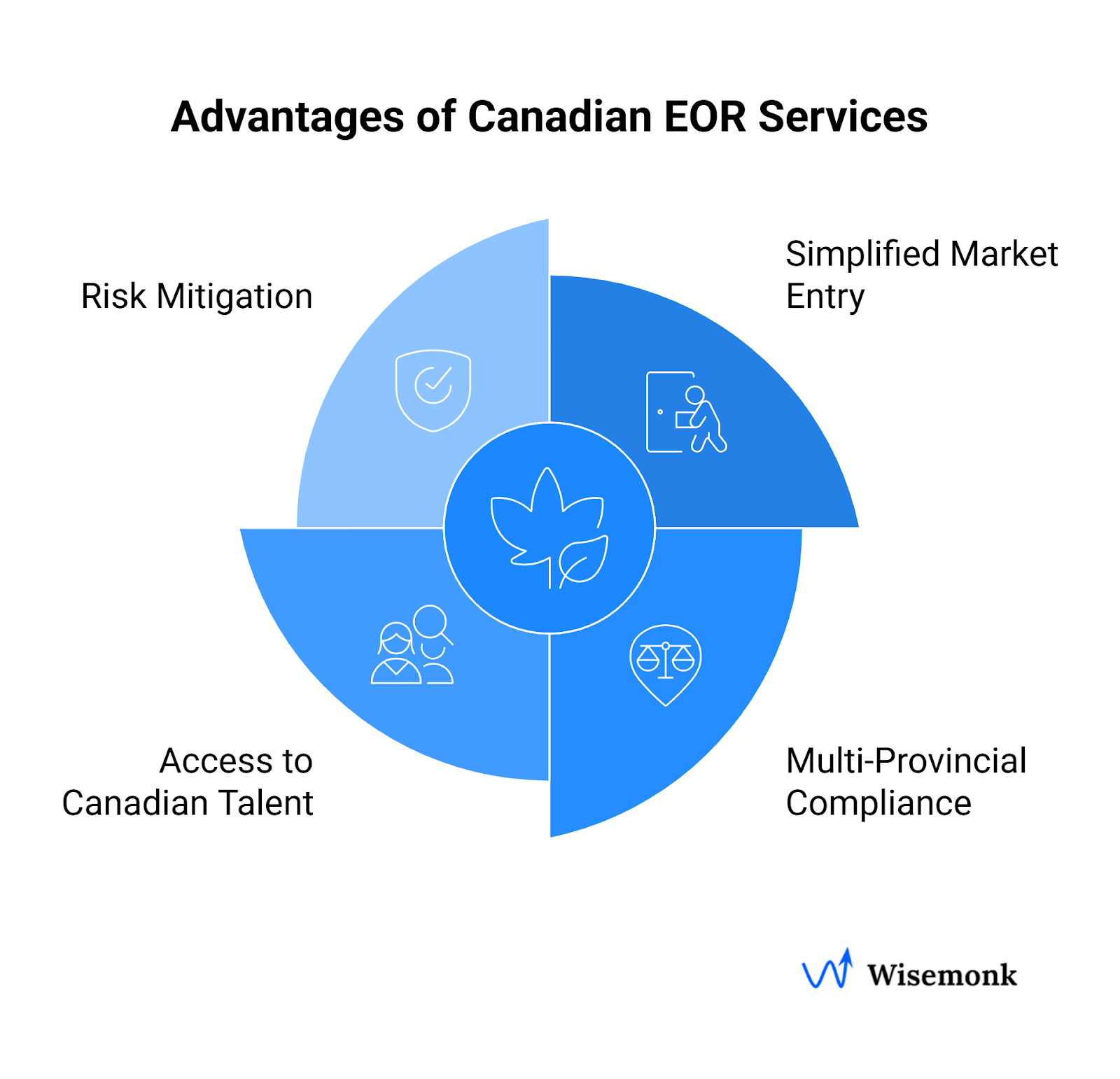
- Simplified Market Entry: No need to establish a legal entity, employ Canadian workers quickly and legally through a third-party service provider acting as the legal employer.
- Multi-Provincial Compliance: Employer of Record partners have local expertise; they can easily manage payroll deductions, local labor laws, and minimum wage variations across provinces.
- Access to Canadian Talent: Enables companies to hire and pay Canadian employees while offering them competitive benefits packages.
- Risk Mitigation: EORs ensure compliance with employment insurance, tax regulations, and avoid costly legal disputes or misclassification.
How Does Payroll and Tax Compliance Work in Canada?[toc=Payroll & Tax Compliance]
Canadian payroll is regulated by strict federal and provincial laws. Here's how it works:
- Canada Revenue Agency Requirements: Registration, reporting, and timely payment of income tax, Canada Pension Plan (CPP), and Employment Insurance (EI) contributions.
- CPP and EI Contributions: Both employer and employee pay toward these statutory benefits, with rates updated yearly by the CRA.
- Provincial Tax Obligations: Each province has its own payroll taxes, such as Quebec’s additional Parental Insurance Plan and British Columbia’s Employment Health Tax.
- T4 & Other Reporting: EORs guarantee accurate T4 issuance for year-end tax filing and reporting to Social Development Canada.
What Employee Benefits and Entitlements Are Mandatory in Canada?[toc=Employee Benefits & Entitlements]
Ensuring proper employee benefits is a legal obligation and a key driver of talent retention in Canada. EORs manage these entitlements as the legal employer. Here are the employee benefits that are mandatory in Canada:
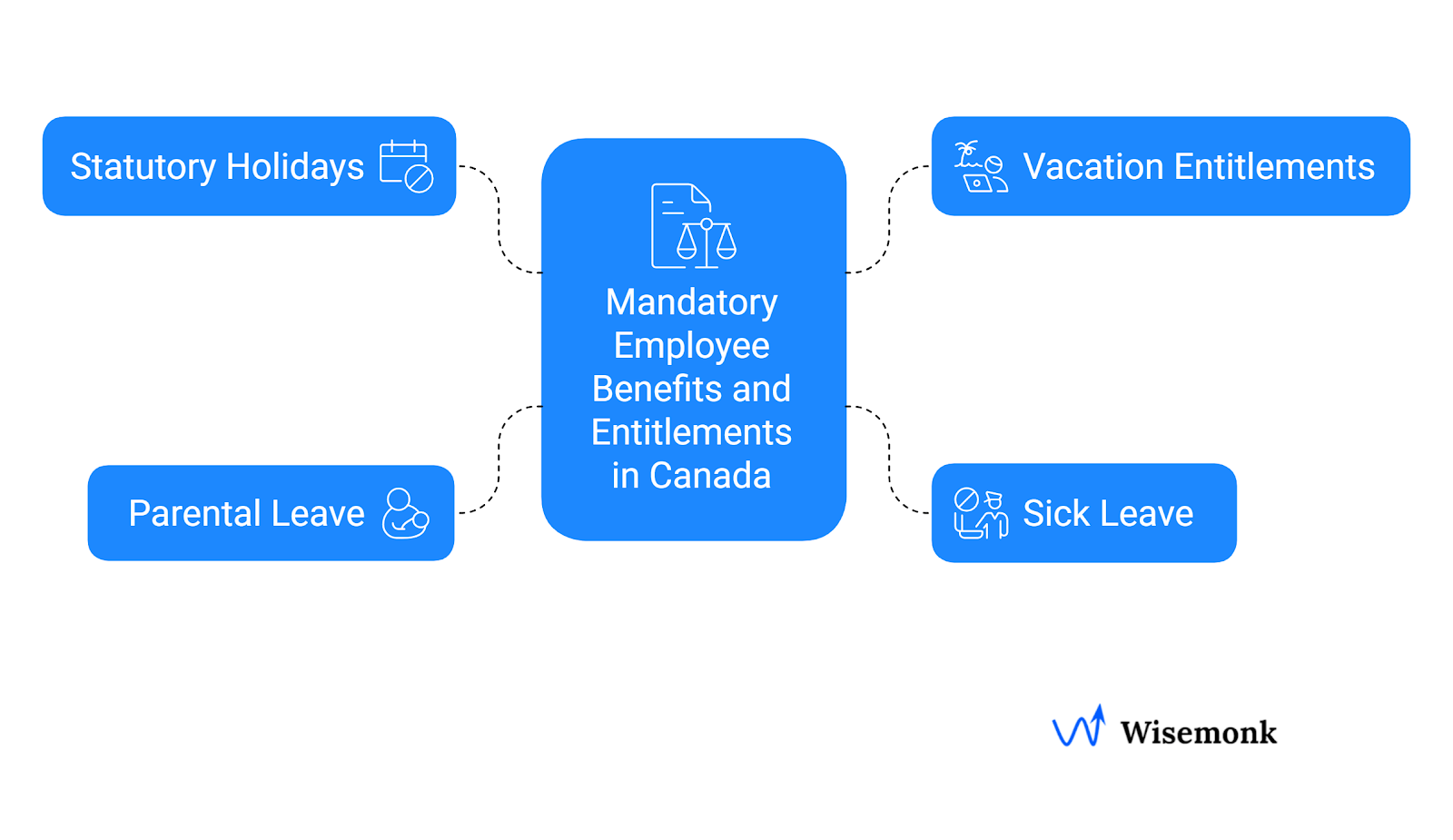
- Statutory Holidays: Number and type of paid holidays vary by province; for example, Ontario mandates nine statutory holidays annually.
- Vacation Entitlements: Minimum vacation (usually two or three weeks per year), with some provinces requiring more generous leave.
- Sick Leave: Employers must grant unpaid or partially paid sick days, with minimums set by each province.
- Parental Leave: Parental and maternity leave benefits are governed by both the Canada Labor Code and provincial statutes, often administered via Employment Insurance.
What Does the Canadian Hiring Process and Documentation Involve?[toc=Hiring Process & Documentation]
After ensuring employee benefits and entitlements, the hiring process is the next key pillar. Here’s how the process typically works:
What paperwork and checks do you really need?
You’ll need to collect a few essentials: a verified government ID, your new hire’s Social Insurance Number (SIN), and a properly signed employment agreement tailored to Canadian employment law.
How about background checks?
Depending on the province and the job role, background checks can include everything from criminal record screening to reference and credential verification. Local employment laws dictate what’s required and permitted, so your EOR ensures every step meets legal standards.
How long does onboarding usually take?
Fast-tracking compliance is standard; most Canadian EOR services get the full documentation sorted in just 1–2 weeks, sometimes even faster depending on how quickly documents are provided.
Are there any onboarding best practices?
Absolutely. We always recommend thorough provincial health & safety training and cultural integration sessions, including anti-harassment education. It’s not just about ticking boxes for labor law compliance, it’s about setting up your teams for long-term success in the Canadian market.
How Can Canadian Remote Teams Be Managed Effectively?[toc=Remote Team Management]
Once you’ve handled hiring and paperwork, the real key is building a remote team that’s both connected and compliant. Here’s how leading companies blend legal standards with genuine collaboration to help their Canadian teams thrive from coast to coast.
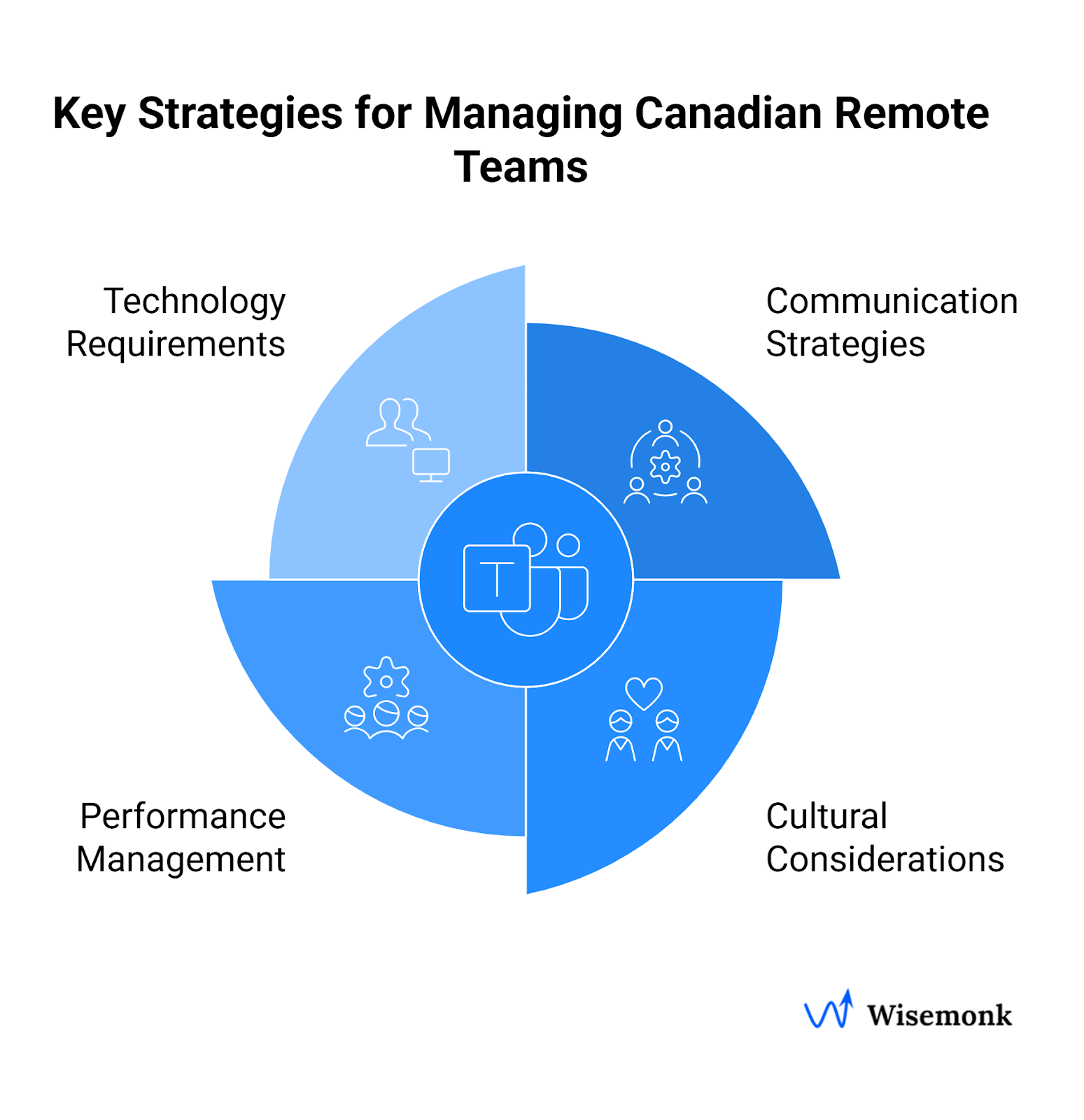
- Smart Communication: Regular check-ins are scheduled thoughtfully, always taking into account Canada’s multiple time zones. This helps teams stay connected and ensures that no one feels left out, regardless of whether they're located in Toronto, Calgary, or Halifax.
- Inclusion and Bilingualism: Embracing both English and French, and honoring regional customs, is critical in the Canadian context. This creates an inclusive environment where every employee feels respected and valued, and it also aligns with official language and diversity expectations.
- Performance Management: KPIs are set not just for business alignment, but also to reflect Canadian workplace standards, such as fairness, transparency, and clarity. Frequent and candid feedback supports professional growth and keeps everyone moving toward common goals, while ensuring provincial employment laws around reviews and goal-setting are met.
- Data Privacy and Technology: Canadian employment law and the Personal Information Protection and Electronic Documents Act (PIPEDA) set a high standard for safeguarding employee data. Choosing platforms and tools that meet PIPEDA, and, where necessary, GDPR, requirements ensures you protect confidential information and avoid compliance risks.
With the expertise of an Employer of Record, companies don’t just tick compliance boxes; they create remote workplaces that champion inclusion, protect sensitive data, and drive engagement across Canada’s diverse and dynamic labor market.
What Are the Real Costs and Key Considerations When Expanding Into Canada?[toc=Costs & Key Considerations]
Getting a handle on costs is essential before hiring in Canada. With so many provincial and federal rules, smart planning up front means fewer surprises, and more confidence in every expansion move. Here’s what truly matters when you’re sizing up your investment.
- EOR Service Pricing Models: Most employer of record services in Canada charge between 8%–15% of gross payroll. This can be structured as a per-employee fee or bundled into a comprehensive package that includes payroll processing, tax deductions, statutory benefits administration, and compliance monitoring. The predictable monthly fee makes it easier to manage ongoing expenses while outsourcing complex legal employer responsibilities.
- Comparison with Entity Setup Costs: Launching your own Canadian entity typically means a significant upfront commitment. Incorporation and legal registration often exceed $15,000–$25,000 before you even begin to hire Canadian employees. Ongoing yearly expenses for payroll tax registrations, accounting, benefits administration, and compliance reviews can add thousands more to your annual budget.
- Hidden Costs and Considerations:
Beyond headline numbers, Canadian provincial rules sometimes introduce surprise costs, such as:- Employment health taxes (varies by province)
- Workers’ compensation premiums
- Payroll adjustments for local minimum wage increases
- Legal fees from evolving employment laws or disputes
- Additional compliance expenses as legislative updates take effect
- ROI Calculation Methods:
To evaluate the value of EOR against direct incorporation, consider:- Compliance cost savings: Avoiding administrative headaches and costly regulatory errors.
- Risk reduction: Lower exposure to fines or lawsuits by leveraging the EOR’s compliance expertise.
- Time-to-market acceleration: The ability to hire employees and generate revenue weeks or months faster than if you built your own legal entity.
Conclusion[toc=Conclusion]
Canadian expansion is an exciting opportunity, when handled with precision. In our experience as a leading EOR service provider, companies that leverage EOR solutions achieve faster compliance, seamless integration, and lower risk across provinces. Choose experienced EOR partners familiar with Canadian law, compare service models, and plan for ongoing legislative updates as your footprint grows.
Ready to expand your global business quickly and compliantly? Partner with Wisemonk’s Employer of Record services to effortlessly manage hiring, payroll, and compliance, so you can focus on growing your business with confidence.
Frequently asked questions
How do provincial employment laws affect EOR services?
Provincial laws dictate minimum wage, overtime pay, statutory holidays, and benefits, so EORs must tailor services to each province for full compliance.
What are the costs associated with Canadian EOR?
Costs typically include a monthly fee covering payroll, tax compliance, benefits administration, and legal employment in Canada, offering a cost-effective alternative to setting up your own legal entity.
What benefits are mandatory for Canadian employees?
Statutory benefits include vacation, sick leave, minimum notice periods, employment insurance, Canada Pension Plan contributions, and statutory holidays. Additional private health insurance may be offered for competitiveness.
Can EOR help with temporary foreign workers?
Yes, many EORs can help with compliance for hiring international employees, provided all legal and immigration requirements are satisfied according to local and federal Canadian laws.
What is the purpose of the record of employment in Canada?
An ROE documents an employee’s work history, earnings, and reason for leaving, and is used to apply for Employment Insurance (EI) benefits.
How long does an employer have to issue a record of employment in Canada?
Employers must issue the ROE within 5 days of an employee’s interruption of earnings or electronically submit it immediately if using an online system.
.png)

.png)
